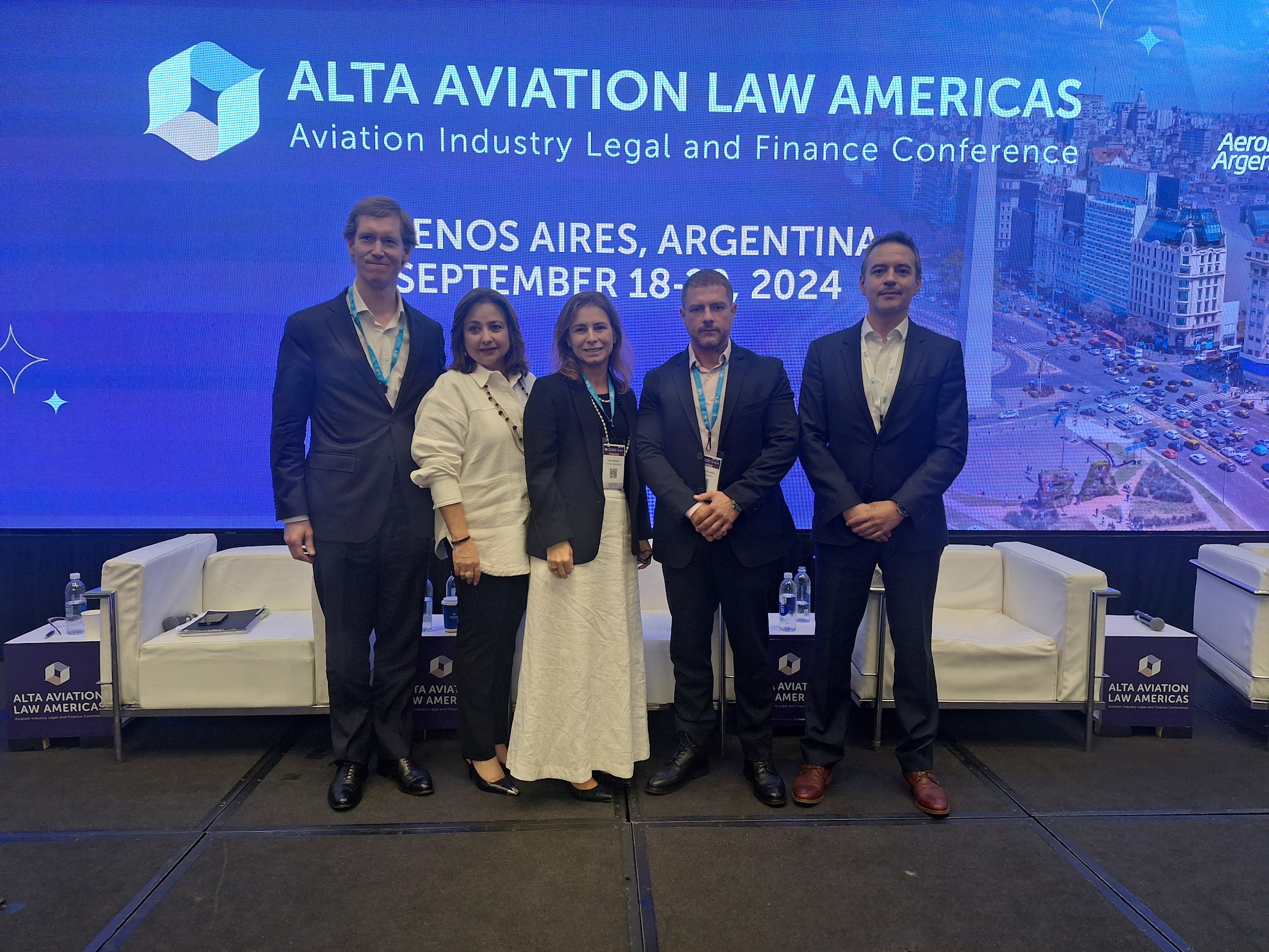Disruptive Passengers and Regulatory Harmonization in the Latin American Aviation Sector
Moderated by Ivette Franco, Senior Legal Director and General Counsel of Copa Airlines, the debate covered regulations, costs, and possible solutions for this growing issue.
September 23, 2024

Panama, September 24, 2024 – During the ALTA Aviation Law Americas 2024 conference, the panel "Beyond the Ordinary: Disruptive Passengers and Peculiar Cases in Latin American Aviation" discussed the challenges related to disruptive passengers. Moderated by Ivette Franco, Senior Director and General Counsel of Copa Airlines, the debate addressed regulations, costs, and potential solutions for this growing issue.
Among the topics discussed, Francisco Prat, partner at Prat & Cia Lawyers, emphasized the importance of standardizing sanctions across Latin America, highlighting the need to avoid inconsistency between countries, which can impact both air safety and passenger experience.
Luisa Medina, from Di Ciero Lawyers, discussed the substantial costs generated by disruptive passengers, from fines and legal sanctions to operational losses and reputational damage. She suggested that airlines adopt proactive strategies to mitigate these costs and protect their business and customers.
The legal challenges in implementing watch lists in the region were addressed by Richard Galindo, General Counsel and Legal Director at Avianca. "It is crucial to create more transparent and fair mechanisms to handle serious cases. Brazil, for example, is advancing in regulation and is already in the final phase of public consultation for the implementation of passenger no-fly lists."
Thiago Carvalho, on the other hand, highlighted the stance of the Latin American Civil Aviation Commission (CLAC) on the need to ratify the 2014 Montreal Protocol (MP14) to strengthen law enforcement measures in cases of disruptive passengers. He noted that the U.S. has a stricter approach, and that Latin America lacks similar alignment in its sanctions. "There is no harmonization of the agenda between countries; each one has its policies or simply lacks policies on the matter. The difference is significant between the sanctions imposed by each country. In the U.S., it is much easier to prosecute a passenger than in Latin America," he explained.
Ivette Franco closed the panel by emphasizing the importance of collaboration between governments, airlines, and international organizations to develop integrated solutions. “In addition to regulatory harmonization, it is essential to invest in awareness and safety campaigns both on the ground and onboard. Another important point is that it is not enough for countries to be signatories to the Tokyo Convention or the 2014 Montreal Protocol. These provisions must be included in each country’s criminal and administrative regulations so that disruptive passenger actions have real consequences. It is up to airlines, ALTA, and IATA to include this topic in our agendas to encourage authorities to take action and establish fines and sanctions for these cases, as well as making passengers responsible for covering the costs airlines incur due to their disruptive actions.”
The panel not only highlighted the challenges the industry faces but also called for a coherent regulatory framework that ensures a safer and more predictable aviation environment in Latin America.
























